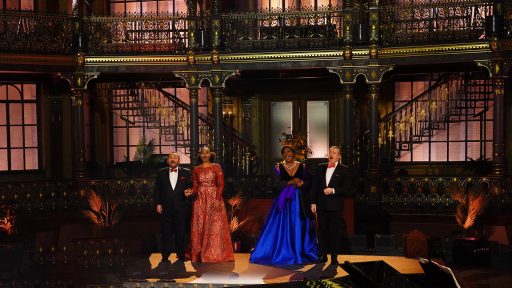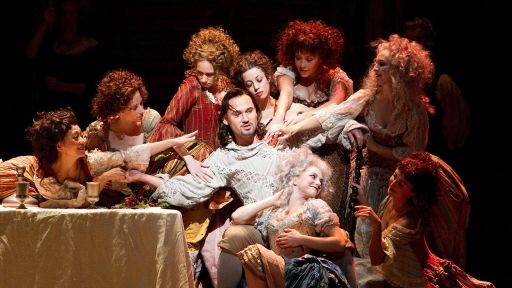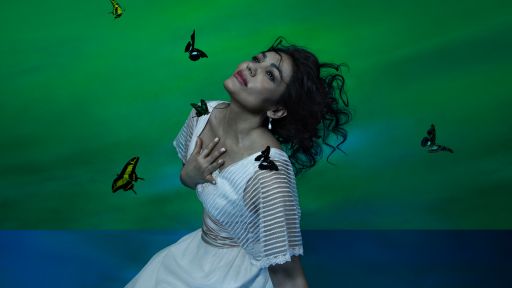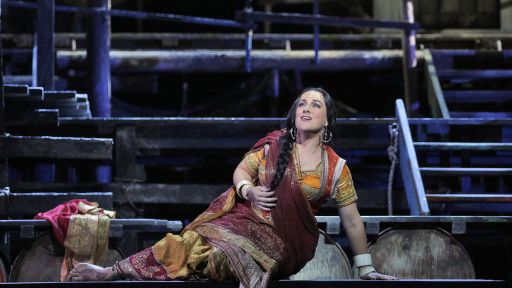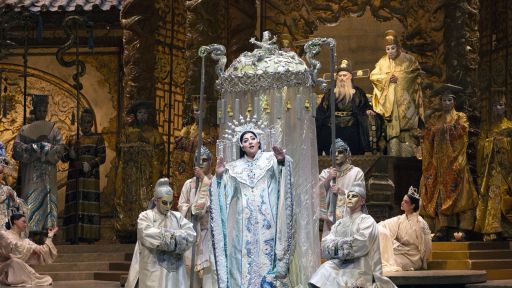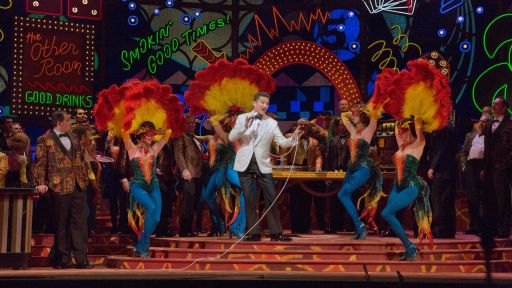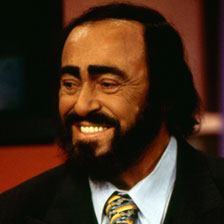
Joe Sinnott-Thirteen/WNET New York
Pavarotti’s friends and colleagues remember his life. Read what they have to say of the late master.
“He was like a, let’s say prima donna? Yes, why not? Prima donna can be also a tenor, and we need prima donnas on stage to catch the audience’s attention.” — Soprano Renata Scotto
“Outside the opera world, Caruso became the first tenor with universal fame because his was the first voice credible on record. He was the first best-seller. Half a century (later), along comes Pavarotti and he redefines that model for a mass public.” — Critic Norman Lebrecht
“He was always touching her up and trying to find how she breathed. I think she did influence him because she is so conscious of technique. In fact, she gets cross when she hears young singers trying to sing all the difficult works without the technique that’s necessary.” — Conductor Richard Bonynge, on Joan Sutherland’s influence
“We did L’Elisir (d’Amore) three times and I think it was the role I enjoyed him most in. He was cheeky, and he came on and got the audience in the palm of his hand. He just moved them, and that’s what the business is about, isn’t it?” — Director John Copley
“When we saw him later in life, one thought of him as a lazy tenor; who felt that all he needed do was to get on stage and beam and not really move about. Well, in those years when he did the major recordings, he worked very, very hard, and the results stand the test of time. They are as close to recorded perfection as you can get in those roles.” — Norman Lebrecht
“He was very interested in his high notes. He always wanted Decca to record (them) before he sang anything else, which I didn’t like very much. And he wanted to hear his voice louder that anybody else’s. In the control room I used to say ‘turn him up, turn the others down, and he’ll be happy.’ And he was.” — Richard Bonynge
“This great face, this great voice. The sound of that voice hadn’t been heard for many years. He gave you goose pimples; he made the hair on your hands stand on edge.” — Manager Herbert Breslin
“Happiness in the voice, that’s very important. Pavarotti had happiness in the voice. His technique was based on clarity, on the words, on the vowels. This is something I learned (from) listening to him. It’s important, especially in a tenor, that the words come across, and you can understand them” — Tenor Juan Diego Florez
“Pavarotti understood he had to get out of the opera house. He had (manager Herbert) Breslin, who started putting him into public arenas – where he could sing in front of five or ten thousand people – and who could put him into Hollywood – where he was a complete disaster in a film called Yes, Giorgio. He shouldn’t have gone near that sort of thing, but there was this craving to extend the Pavarotti brand beyond the opera house.” — Norman Lebrecht
“The personality was partly his own and partly created by the publicity. I think the idea of the handkerchief, et cetera, was created just to make something that was not of the normal.” — Tenor Placido Domingo
“He invited artists from the world of pop music to sing with him; he knew he’d raise a lot more money that way. But he loved the experience. He found it difficult to sing pop, but he loved (that) world. He loved meeting Sting, Bono, Stevie Wonder. And some of the artists became really good friends. Bono was like a son to him.” — Manager Terri Robson, on the Pavarotti & Friends charity concerts
“I am a servant of the audience. The public understand(s) and give(s) me back the love with applause.” — Luciano Pavarotti


